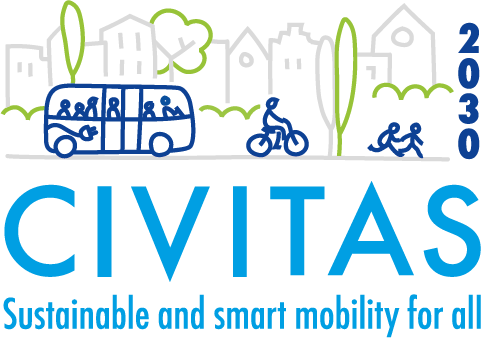
News
Barcelona Hosts the Second REALLOCATE Consortium Meeting
19 November 2024
Urban development experts, city planners, and climate strategists gathered in Barcelona for the second REALLOCATE Consortium Meeting. The event, hosted by Barcelona City Council, attracted representatives from various European cities, including Lviv, Tbilisi, and Varna, who joined as "Cascade Cities" to explore innovative urban planning solutions.
The meeting commenced with insights from Maria Buhigas San José, Chief Architect of Barcelona, who emphasised that "building a city is a collective action." Her remarks set the stage for an intensive three-day program of workshops, site visits, and collaborative discussions designed to foster creative solutions for urban sustainability. The site visits were a great opportunity to understand Barcelona's mobility context, allowing for the chance to discuss project topics outside of the meeting room, in the sun and fresh air.
Day 1: Exploring Barcelona's Climate Strategy and Superblocks
The first day highlighted Barcelona’s cutting-edge urban strategies, with Mar Campanero Sala from the Climate and Sustainability Office presenting the city’s climate change initiatives. Participants delved into the transformative concept of "superblocks," a pioneering approach to neighbourhood design that minimises vehicle traffic and maximises pedestrian-friendly spaces, helping to reclaim the city’s public areas for community use.
An e-bike tour led by Jose Manuel Gutierrez Franco from Lane Patrol gave attendees a first-hand look at Barcelona’s bike-friendly zones and pedestrian spaces, covering areas such as Glòries and Avinguda Diagonal. During the ride, participants evaluated infrastructure safety across four categories of risk, sparking discussions on accident prevention and the challenges posed by shared bike lanes in busy city environments.
Day 2: Data and Decision-Making at the Barcelona Supercomputing Centre
The Barcelona Supercomputing Centre (BSC) opened its doors to REALLOCATE participants, providing a unique tour of its facilities housed within the historic Torre Girona chapel. Through 3D visualisations and interactive data mapping, BSC experts showcased how high-performance computing and visual storytelling are influencing urban design decisions. Various project researchers also presented data-driven findings relevant to urban planning, such as the impact of street layout on housing affordability, gender differences in library use, and the effectiveness of cycle lanes in preventing accidents.
In the El Born district, delegates took part in a "Walking Audit," organised by the International Federation of Pedestrians. Designed to be accessible for people of all ages and digital literacy levels, this low-tech evaluation method used paper and pen to assess sidewalks, crossings, noise levels, and community elements. Participants reflected on differing perceptions of safety and comfort among residents and newcomers, emphasising the need for inclusive urban designs that consider the diverse experiences of city dwellers.
Barcelona’s commitment to reimagining public spaces was evident throughout the meeting. Participants visited the revitalised Sant Martí area, which has seen the restoration of Ca L'Alier and the integration of green spaces. The superblock concept was further illustrated in Poblenou, where streets once dominated by industrial infrastructure are now dedicated to residents’ use.
Summary
The Barcelona Consortium Meeting underscored the critical role of collaboration in sustainable city planning. Aura Istrate, UCD, expressed optimism about the progress that has been made: "In the first year, we focused on cities developing their Intervention Plans. Now, our horizontal experts will help implement these tools, co-creating solutions with city partners."
The event fostered a collaborative atmosphere, providing hands-on workshops, data-driven site visits, and real-world evaluations of urban designs. By the meeting’s end, participants were equipped with insights into accessible design, sustainable mobility, and the impact of data on planning, which they will bring back to their cities.
The REALLOCATE Consortium’s work in Barcelona has strengthened its mission to create cities that prioritise community needs and environmental sustainability, proving that collective action is essential for resilient, liveable cities.
Barcelona Consortium Meeting by "Sylwia Sobiczewska"
All news

This project has received funding from the European Union’s Horizon Europe programme under grant agreement No. 101103924. Views and opinions expressed are however those of the author(s) only and do not necessarily reflect those of the European Union or the European Commission. Neither the European Union nor the granting authority can be held responsible for them.


REALLOCATE is a project under the CIVITAS Initiative, an EU-funded programme working to make sustainable and smart mobility a reality for all, and contributes to the goals of the EU Mission Climate-Neutral and Smart Cities.
